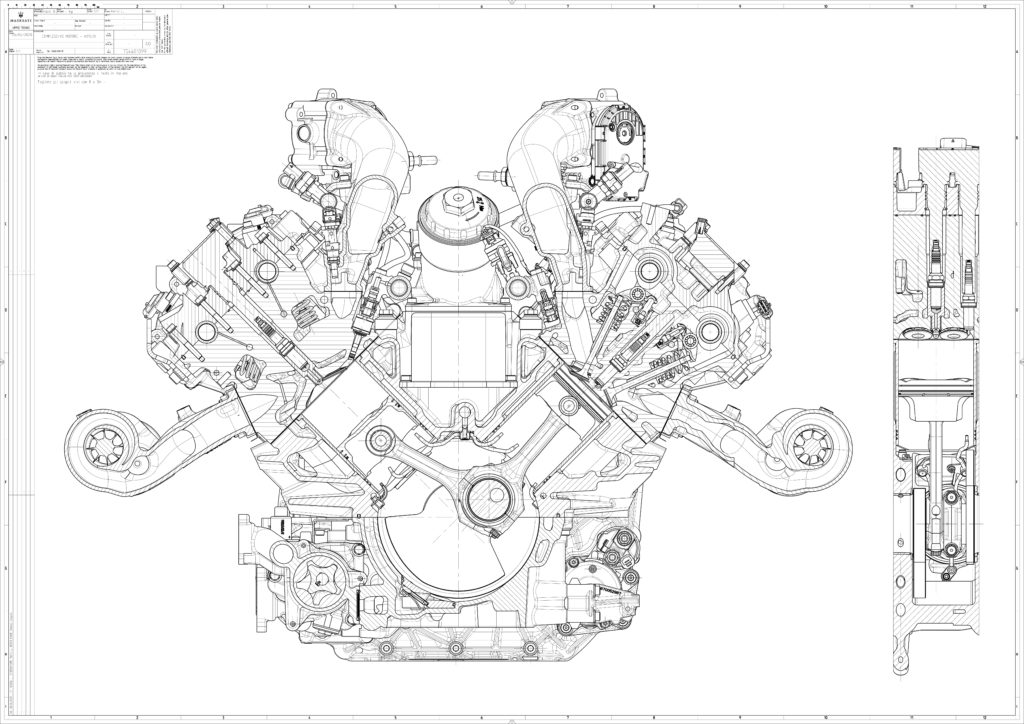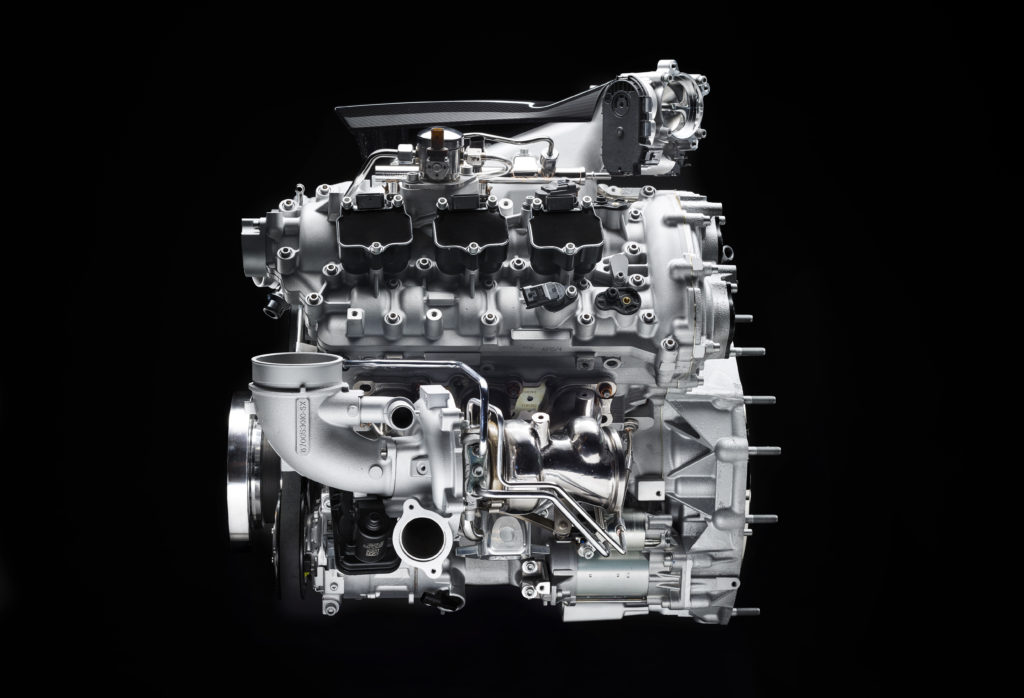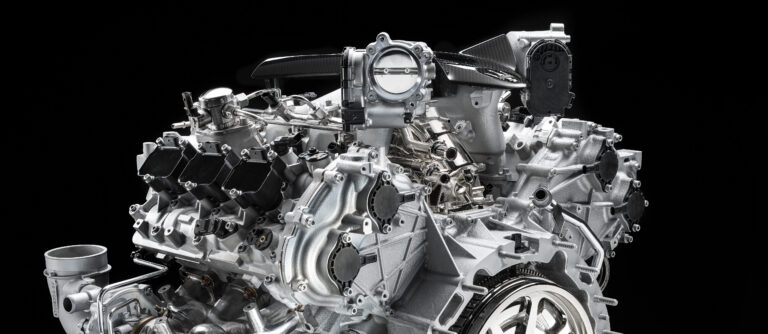Pre-chamber ignition systems are not a new idea, and have been used in industrial diesel and natural gas engine applications for decades. However, the past five years has seen their adoption in four-stroke gasoline engines used in motorsport series where fuel-flow restrictions place a premium on thermal efficiency, notably Formula 1 and in the LMP1 category of Le Mans racing.
The reason for their adoption has been to facilitate stable combustion under very lean running conditions, which would traditionally result in damaging knock when combined with elevated compression ratios in boosted applications – necessary to achieve high power outputs. Now, Maserati is bringing the technology to road-car applications with the announcement of its Nettuno engine, which will be fitted in the upcoming MC20 sportscar.
Maserati has released a number of details on the new engine, including an outline of its innovative fuel/ignition system, which seeks to harness pre-chamber ignition as a means of increasing the power density of its engine, rather than to facilitate ultra-lean running.
On this latter point, one of the main issues experienced with racing engines running at thermal efficiency levels in excess of 45% with very lean mixtures is NOX production. Traditional three-way catalysts are effective at treating such emissions when engines are running at near stoichiometric, but these lose efficiency with richer or leaner mixtures. For racing engines, this is not a problem, but is a substantial roadblock to running ultra-lean production engines that must pass strict emissions tests.
 Due to this emissions problem, Maserati has not sought to produce a very lean burning engine and is instead using its pre-chamber system to increase knock resistance when running at high boost pressure. Meanwhile, it says it retains the refinement expected of a production car through using a hybrid system of pre-chamber and traditional spark ignition, combined with both port and direct injection. When ignition is instigated by the plug in the pre-chamber, the result is that a series of high-pressure jets are forced through the orifices in the chamber, leading to a much faster burn of the main chamber mixture than is possible with a traditional plug.
Due to this emissions problem, Maserati has not sought to produce a very lean burning engine and is instead using its pre-chamber system to increase knock resistance when running at high boost pressure. Meanwhile, it says it retains the refinement expected of a production car through using a hybrid system of pre-chamber and traditional spark ignition, combined with both port and direct injection. When ignition is instigated by the plug in the pre-chamber, the result is that a series of high-pressure jets are forced through the orifices in the chamber, leading to a much faster burn of the main chamber mixture than is possible with a traditional plug.
Under high load, high boost running, the pre-chamber ignition system is used, preventing detonation and enabling high boost levels, while at low loads the traditional plug ignition comes into play. This way, the noise and vibration issues that are characteristic of pre-chamber ignition systems are avoided when cruising or at low speeds. At high speed and high load, NVH becomes much less of a concern for drivers.
As shown in the illustrations, the engine features a pre-chamber in the center of the combustion chamber, which contains a sparkplug, as well as a laterally mounted plug in the side of the chamber. The direct injector is situated underneath the inlet valve at an angle of 25-30° from the piston crown, with the port injector firing almost vertically down toward the back of the inlet valve. Maserati says that the operating pressure of the direct injection system is up to 350 bar.
Of particular interest is the use of a passive pre-chamber system. Unlike Mahle’s Turbulent Jet Ignition system, unveiled in 2016, which places an injector and plug inside the pre-chamber, Maserati’s system draws fuel into the pre-chamber during the compression stroke from the main cylinder. This is similar to the way Porsche operated the pre-chamber system on its 919 Le Mans Hybrid and has a number of benefits, not least a reduction in the size of the pre-chamber, meaning a smaller combustion chamber surface area thus less heat losses. Through optimization of the orifice geometry, the flow into and thus mixture inside the pre-chamber can be controlled.
In overview, the Nettuno engine is a 3-liter, six-cylinder with a 90° bank angle. Total output is 630bhp at 7,500rpm, with peak torque of 730Nm at 3,000rpm. This makes its specific power output an impressive 210bhp/liter. Maserati says that the MC20 will “take Maserati back to the world of racing”, and looking at the specifications, the engine would make an ideal candidate for use in the upcoming IMSA LMDh formula or the ACO’s Le Mans Hypercar class.



